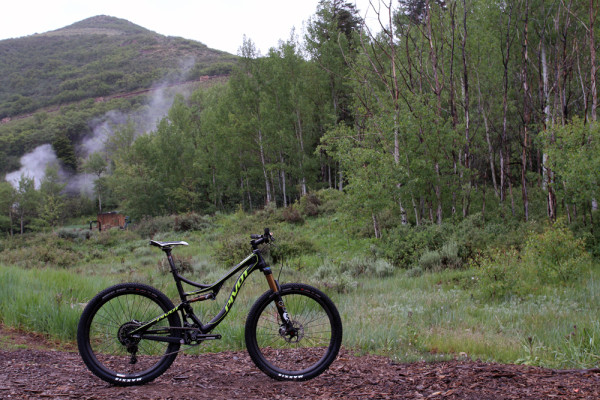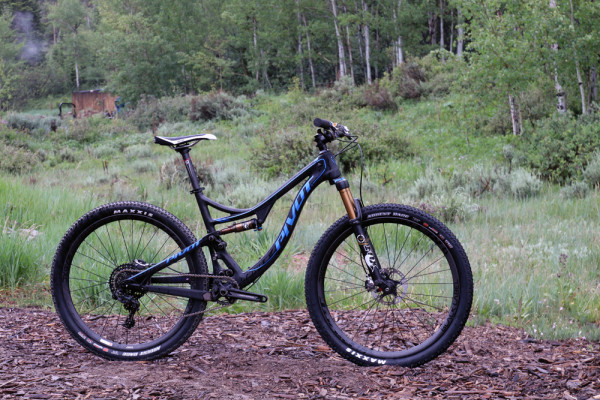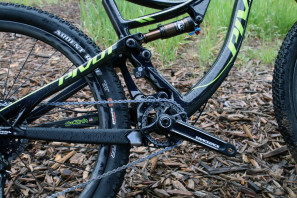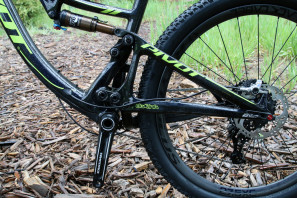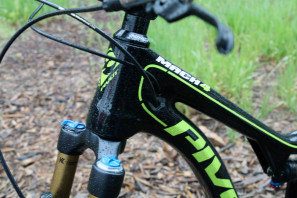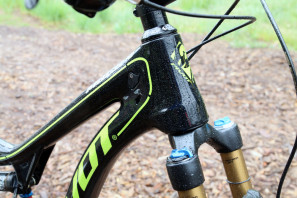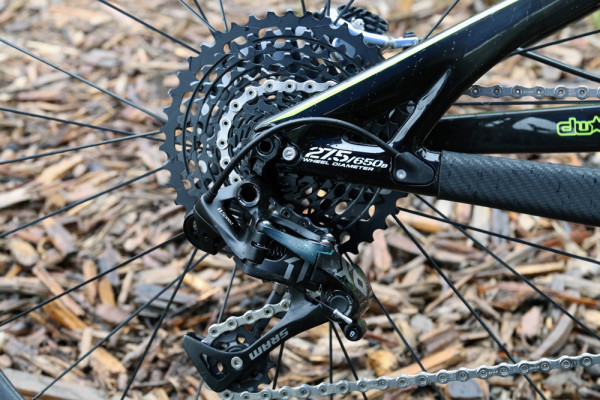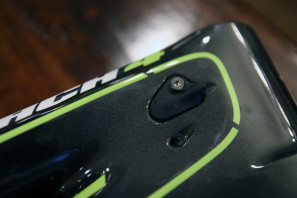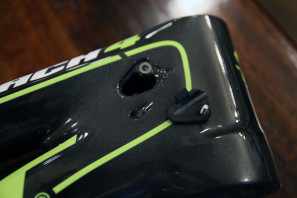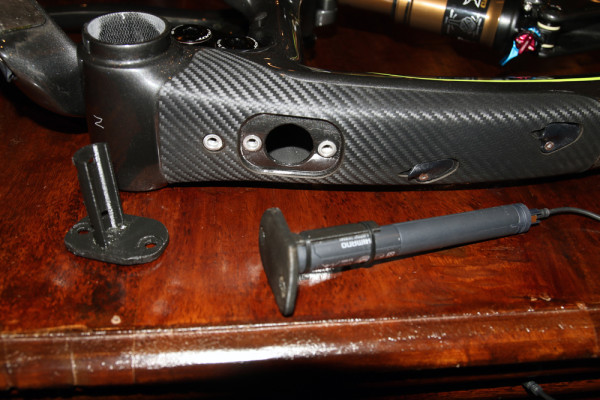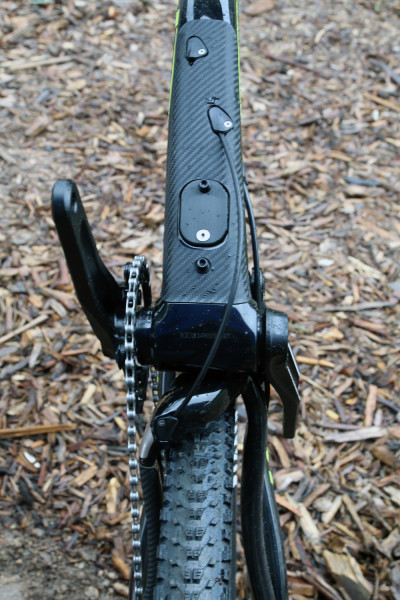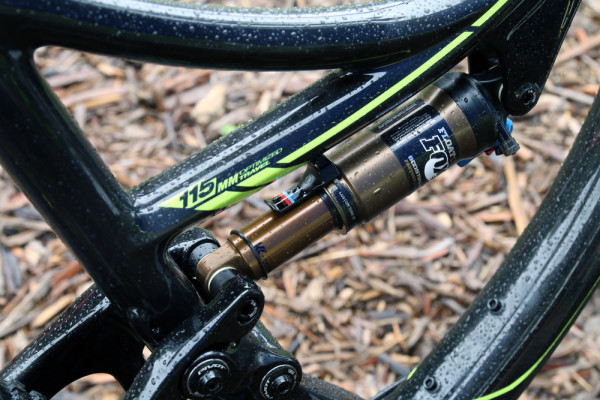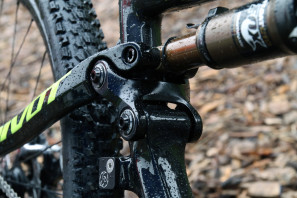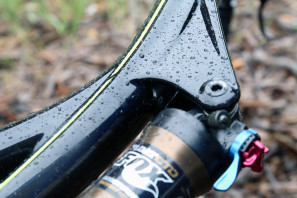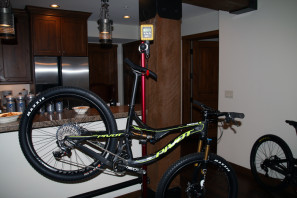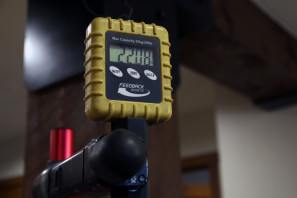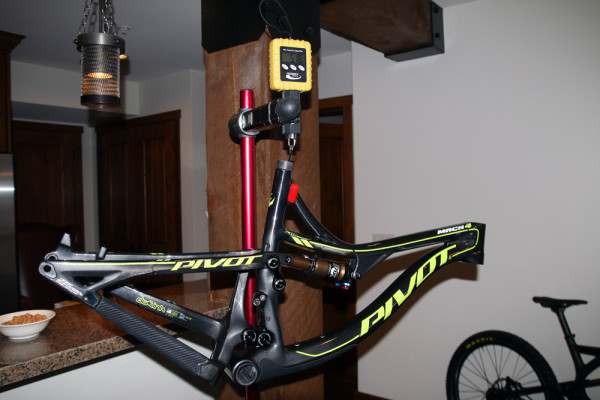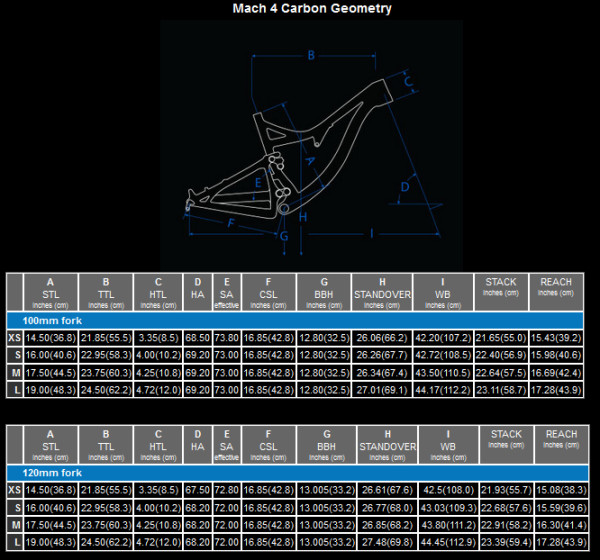Pivot Cycles has a lot of bikes in the current line up, but the Mach 4 has been around since the beginning. As the very first Pivot back in 2007 when Chris Cocalis started the company after his stint with Titus Bikes, the Mach 4 was the introduction to the Pivot way – DW Link equipped, high quality, confidence inspiring full suspension bikes. A lot has changed since those early days, not only with bike construction, but in the way people ride. After the introduction of the successful Mach 429 and longer travel 27.5″ bikes, it was time to revisit the 26″, aluminum Mach 4.
In typical Cocalis fashion, the Mach 4 isn’t just a larger wheeled version of the original, but a complete redesign that integrates almost every industry standard you can think of in a sexy, light weight package.
Integrate yourself with the details, next…
Starting with the same 100mm of travel as the original, Chris quickly realized that the 27.5″ wheels caused you to want to push the bike harder than your typical XC machine. Looking to add a bit more trail worthiness to the ride, Chris played tested a number of travel settings but found that up to 115mm of travel still provided the same snappy, XC characteristics of the 100mm design. But anything over 116mm transferred into the realm of specific trail bikes, and with travel between 115-125mm, the descending characteristics didn’t really change. Settling on the sweet spot of 115mm, the travel provides the ideal mix of XC pedal efficiency and Trail capability that riders are starting to look for in short travel, aggressive bikes.
Now in its fourth generation, the new carbon Mach 4 will be sold with a 120mm fork, though it can be equipped with 100mm forks for more XC riding. Pivot worked a lot with Fox for rear shock to produce a tune that would allow for both race and trail sag settings with their own indicator. Set at around 27% for the race setting, the bike will see more ramp up at end of stroke for similar pedaling performance as if it were a 100mm travel bike. Set up the Mach 4 in the Trail setting though, and you will be rewarded with a lower bb, slacker head angle, and more linear travel that is easier to use the full amount. Chris expects most riders to use the Trail setting, but the Race setting is there when you need it.
The suspension settings compliment the new geometry which is based on the industry trend of offering more aggressive angles in shorter travel bikes. When Pivot introduced the Les 27.5 hard tail, Cocalis likened it to a big BMX bike with a slacker head angle and more fun factor but keeping the XC capabilities. The same is true with the Mach 4 which is built with a 68.2 degree HTA and 72 degree STA with a 120mm fork. Switching to a 100mm travel fork changes it to a 69.2 HTA, and 73 degree STA.
Sold in XS, S, M, and L, Cocalis was particularly excited about the XS size stating that it has a lower stand over than their old XXS 26″ bikes. In addition the bike has a different shock so smaller riders can run the same pressures so the valving on the shocks stays the same, along with a few other tweaks in geometry to help smaller rider get the most from their bikes. Top tube lengths range from 21.85-24.50″ for the large, which still may leave taller riders reaching for the Mach 429 carbon instead (which taller riders are more likely to do anyways).
Seeing as how Shimano just introduced their first Di2 mountain bike group, one of the most fun aspects of the process for Chris was figuring out how to make a bike that was compatible with everything, yet still offered a clean design. The result is what he is calling the first fully integrated Di2 mountain bike frame on the market. Chris has never been a huge fan of internal cable routing, but it’s a feature that many riders look for so he set out to create a system of cable guides that satisfied his preferences. Each custom cable port is made so that it not only seals the frame, but puts a slight amount of pressure on the cable to keep it from rattling or moving. Everything is incredibly easy to install and route, and the guides allow for mechanical 1x or 2x drive trains with standard top pull, or new Shimano Side swing front derailleurs, internal droppers, suspension lock outs, and of course Di2…
Let’s be honest, few people shelling out the money for XTR Di2 will be happy with the external battery, so Pivot figured out a clever way to integrate it into the frame. These pieces are still rapid prototypes, but they demonstrate how the battery will be inserted into the down tube and up into the seat tube from the bottom. This not only allows for dropper posts with an internal battery, but also provides a huge access hole to make internal routing of junction boxes, or mechanical cables as easy as possible.
When all bolted up, the upper battery mount bolt also acts as the upper bottle cage attachment for the lower mount. There is a second cage mount inside the front triangle. Like the rest of the Pivot carbon bikes, the Mach 4 has a rubberized leather downtube and chainstay protector to protect your frame from rocks.
The rear derailleur housing is routed over the BB92 bottom bracket in the cleanest route possible. When used with mechanical drive trains, the frame supports full derailleur housing. At this point most of the other specifications have become more or less standard with post mount disc brakes, 142x12mm rear axle, and tapered head tube.
Mach 4s will ship with custom tuned Fox Float CTD Kashima rear shocks, which are mounted to a wider top link and larger Enduro Max lower bearings for improved frame stiffness. Of course the carbon frame itself deserves some notice with the new composite frame replacing the previous Mach 4’s aluminum skin with Pivot’s Hollow Box internal molding technology.
Officially the lightest full suspension bike pivot has ever made, the Mach 4 comes in right at 5.1lbs for the frame and this particular complete build came in at 22.08 lbs.
Mach 4s will be sold in 11 different complete builds including the entry level SLX at $4,499 to the XTR Di2 2X group at $8,999. Frames will also be available alone with a Fox CTD Kashima shock for $2,899 or as a frame kit that will include a Fox F120 CTD Kashima fork, Pivot HS, and Shimano or SRAM BB for $3,799. Expect to see these hitting your local shop floor this August.
